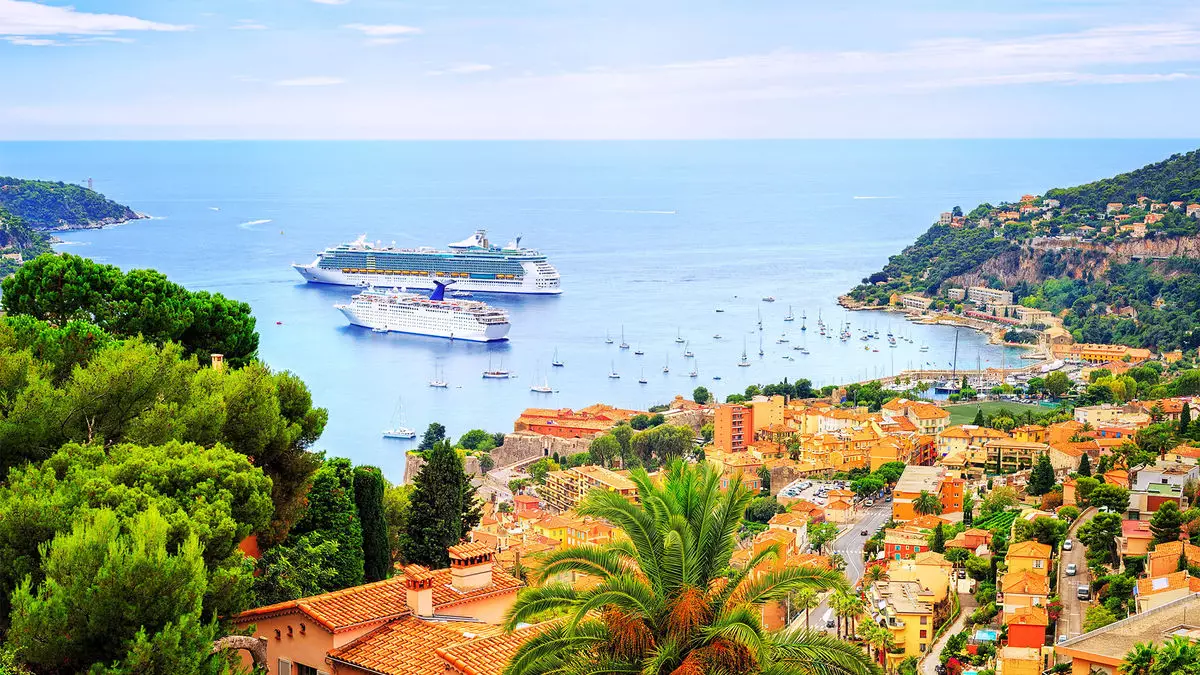The Nice-Côte d’Azur region in France has taken a decisive stand against overtourism with a new decree signed by Mayor Christian Estrosi. Effective from July 1, this regulation explicitly prohibits cruise ships carrying more than 900 passengers from docking in both Nice and the nearby Villefranche-sur-Mer. This action underscores an overarching concern regarding the environmental and social impacts of mass tourism on local communities. Estrosi’s intention to usher in “selective tourism” aims to balance economic growth with sustainable practices, ultimately fostering a more responsible approach to tourism in this iconic French locale.
Despite the apparent authority conferred by this decree, the mayor recognizes his limitations. He cannot outright ban large vessels from entering the open waters of the region but can restrict their passengers from disembarking for excursions. This regulatory framework inevitably affects the profitability of local businesses that thrive on tourism, compelling a delicate balance between embracing commercial interests and preserving the local culture and environment. The cruise ships that typically anchor in the scenic harbor of Villefranche-sur-Mer are now relegated to keeping their guests on board, raising important questions regarding the sustainability of tourism dynamics in the area.
Data gleaned from scheduling reports indicates that Villefranche-sur-Mer is set to see nearly 90 cruise calls in 2025, with a significant proportion involving ships that exceed the passenger threshold. Conversely, Nice expects around 124 visits from smaller ships, allowing for a continued inflow of visitors while adhering to the new restrictions. While the municipality is also exploring opportunities like shore power to lessen the ecological impact of docked cruisers, the shift in visitor dynamics could lead to a fundamental transformation in the local economy.
The response from the cruise industry, especially the Cruise Lines International Association (CLIA), has been corrective and somewhat defensive. Urging Estrosi to reconsider has highlighted tensions between local governance and industry operations. The statement from CLIA denounces the decree as stigmatizing, arguing that it compromises local economies and reiterates the importance of sustainable tourism development. This back-and-forth is not unique to Nice. Cities across Europe, including Barcelona and Venice, are similarly advancing restrictions on cruise traffic, showcasing a growing trend aimed at curbing the detrimental impacts of mass cruise tourism.
As Nice embarks on this unchartered journey of limiting cruise tourism, the ramifications on both tourism and local businesses remain to be seen. The decision reflects a critical evaluation of the effectiveness of existing practices in supporting sustainable tourism while still allowing for economic viability. The long-term outcome may set a valuable precedent for other tourist destinations grappling with the challenges of overtourism, inevitably altering the landscape of international travel in regions heavily trafficked by cruise liners. The conversation about how to responsibly manage tourism in beautiful, yet delicate, ecosystems is far from over.


Leave a Reply